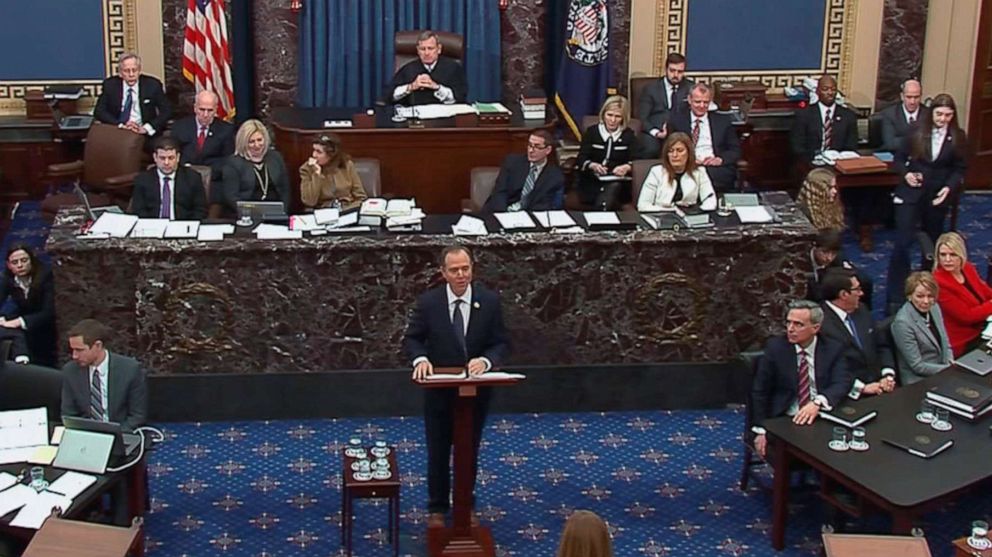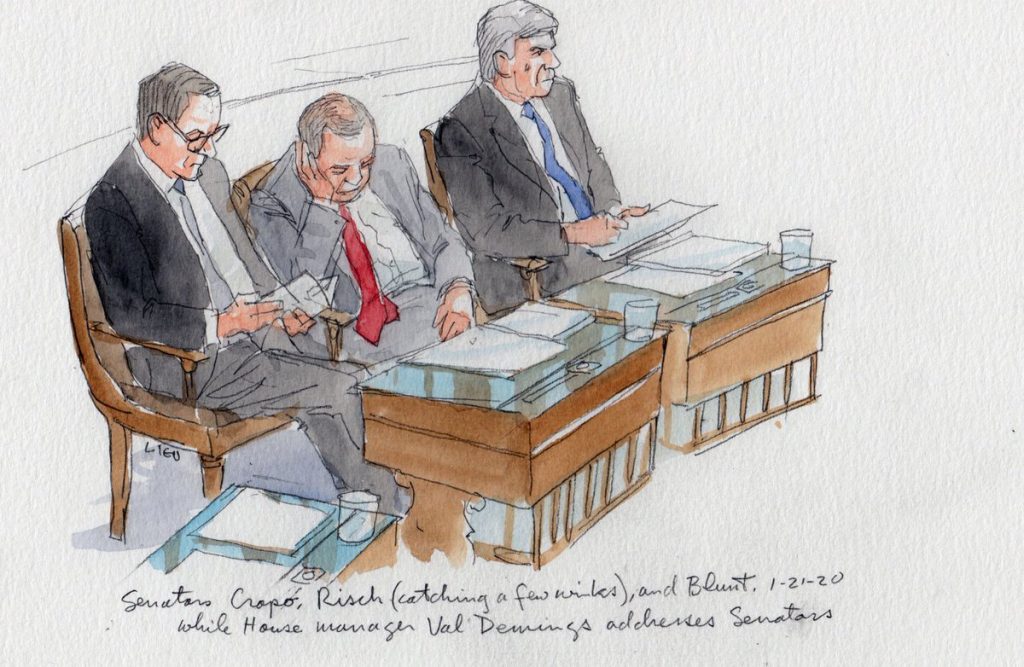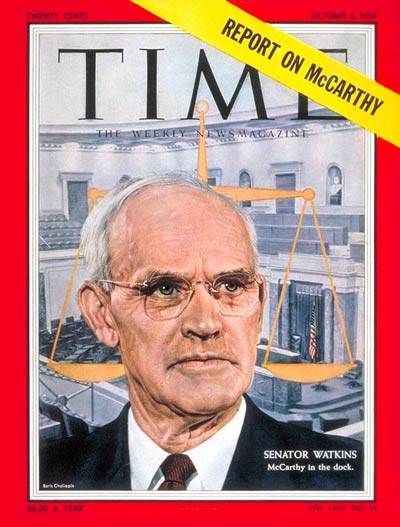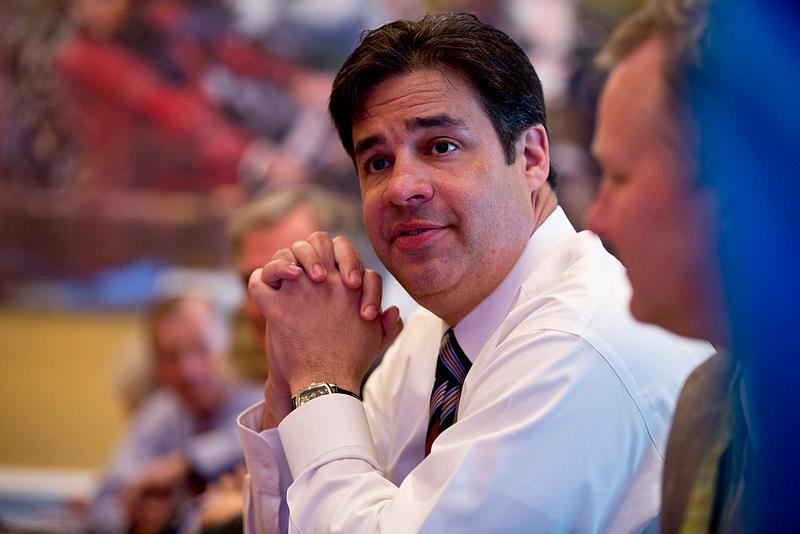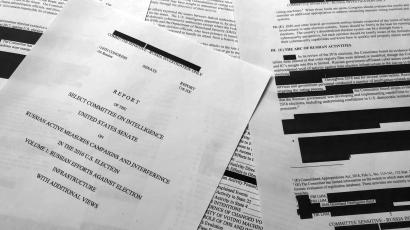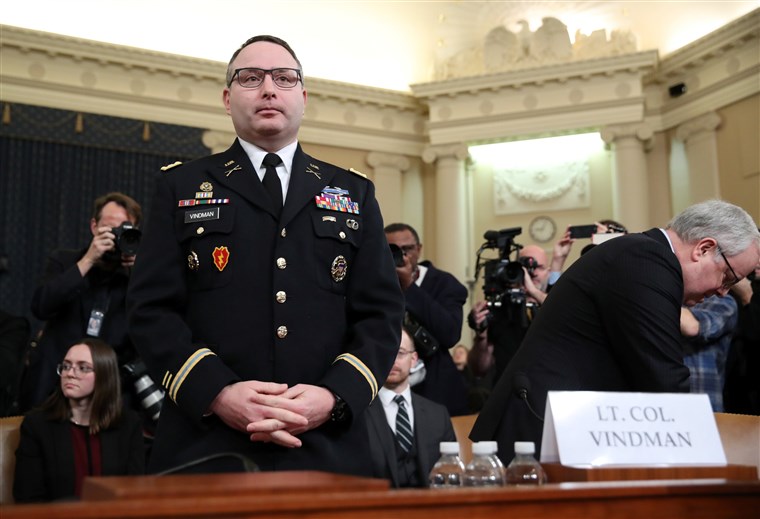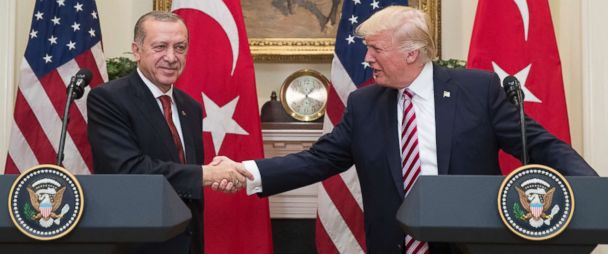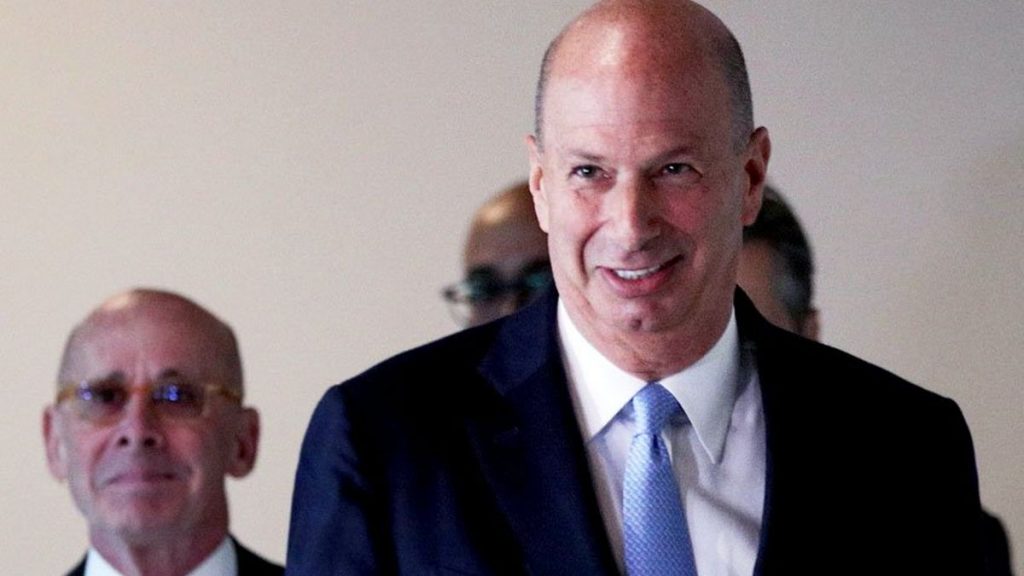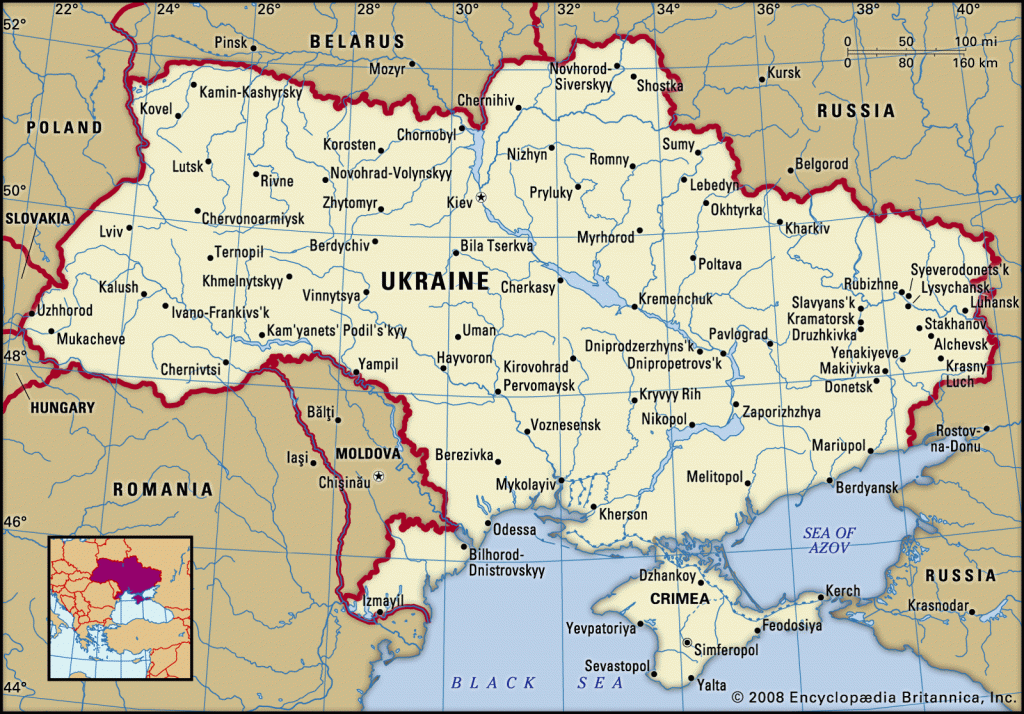The irascible, irreverent Perry Swisher – once an editor at the Lewiston, Idaho paper that publishes my regular column – was a 20th Century Renaissance Man: legislator (he served as both a Republican and Democrat), an independent candidate for governor, a writer, activist, deflater of egos and caustic truth teller, particularly about frauds, phonies and attorneys.
One Idaho governor threatened the judicial council with a Swisher appointment to the Supreme Court – Perry wasn’t a lawyer – if the council didn’t start recommending better candidates for the court. Another governor put Swisher on the Public Utilities Commission and he proceeded for several years to scare the crap out of Idaho Power Company.
Swisher once quipped that the Founders had made one fundamental mistake: they turned over an entire branch of government to lawyers. One can only imagine what the old curmudgeon would have made of the “trial” of America’s first insurrectionist president; where at least 18 of the Senate Republicans jurors who voted to acquit Donald Trump – including the two timid sheep from Idaho – are card carrying members of the bar.

Of course, none of these Perry Mason’s actually attempted to defend Trump’s behavior leading up to and including January 6, 2021 when a crazed mob of the then-president’s followers stormed the U.S. Capitol, killed a police officer, precipitated the deaths of two others and injured dozens more.
This brainwashed gang of cranks, misfits, losers, white supremacists and MAGA true believers were, as Wyoming Republican Liz Cheney succinctly put it, summoned by Trump, assembled by the president who then “lit the flame” of the attack. There has never been such a blatant frontal assault on our democracy.
Everything that followed, Cheney said, “was his doing. None of this would have happened without the President. The President could have immediately and forcefully intervened to stop the violence. He did not.”
That’s it. That was sum of the indictment that 43 Senate Republicans would not, could not defend, but were craven enough to dismiss on specious process grounds.
The “trial was unconstitutional,” Harvard Law grad Mike Crapo said. “The House’s impeachment proceeding blatantly violated established guarantees of due process.”
Jim Risch soiled the reputation of the University of Idaho’s law school where he surely learned more than he is now able to admit. “The United States Senate has no jurisdiction over a private citizen,” the former law and order prosecutor intoned incorrectly, “and thus impeachment was and is impossible.”
Both men conveniently ignored that the Senate has, in fact, conducted trials of impeached officials who are out office and that the Senate in which they sit actually voted on the constitutionality question and a majority of senators deemed the proceedings proper. They weren’t defending the Constitution, they were engaging in jury nullification.
The Trump “base” of the GOP, and those like the coward caucus in the Senate who refuse to confront it, are, in the words of media analyst Margaret Sullivan, “so disconnected from reality that when reality manages to intrude – in the form of undeniable facts, timelines, videos and presidential tweets – there’s nothing to do but deny it as outrageous and either look for an escape hatch or go on the attack.”

And it’s not as though these senatorial profiles in gutlessness don’t know any better. Arkansas’s Tom Cotton, Texan Ted Cruz and the insurrectionist from Missouri Josh Hawley are, like Crapo, Harvard men, recipients of the best, most exclusive legal education America can offer. Cruz clerked for a chief justice of the Supreme Court. Utah’s Mike Lee was an assistant U.S. attorney and clerked for federal judges before jumping through the escape hatch rather than act to uphold an oath of office.
Constitutional law scholar John E. Finn of Wesleyan University is just one of dozens of experts who utterly reject the rationalization of unconstitutionality that allowed Trump to skate. Instead Finn calls what Crapo, Risch and 41 other Senate Republicans did “constitutional rot,” a condition “in which we appear to be formally governed by constitutional rules and the rule of law, but the reality is quite different. When rot sets in, public officials and the public routinely ignore or subvert those rules while sanctimoniously professing fidelity to them.”
The historian T.J. Stiles, a winner of the Pulitzer Prize for biography, knows his American scoundrels. He says of our current one: “Donald Trump is precisely the sort of person for whom the Framers wrote the impeachment provision into the Constitution.” Unfortunately, while Madison and Hamilton and the rest did envision the need to disqualify a despot their imagination failed them when it comes to someone as ethically vacuous as a Cruz or a Crapo.
This is the point at which history reminds his constituents that Crapo – Juris Doctorate cum laud, Harvard Law School in 1977 – has the rare distinction of voting to both impeach and then convict Bill Clinton for lying about consensual sex. Yet rather than confront the guy who summoned the mob, incited it, lit the flame and then watched the fire burn, Crapo employed the solemn sanctimony of the partisan escape hatch to acquit a man he must know in his heart of hearts is guilty as sin.
The debasement of basic decency, truth and accountability are now widely accepted as a fundamental condition for good standing in a political party that once plausibly, but no longer, claimed Lincoln as its founding father.
“The Republicans who voted to acquit Trump acted with selfishness, cynicism and even malice,” says the conservative scholar Tom Nichols. “They have smeared their betrayal of the Constitution all over their careers the same way the January insurrectionists smeared excrement on the walls of the Congress itself. At least human waste can be washed away. What the Republicans did on Feb. 13, 2021, will never be expunged from the history of the United States.”
History will remember, however, the few Republicans – Washington’s Jamie Herrera Beutler is one – who stood against the lies, rejected fears of mob censure and refused to quake at the prospect of facing the dreaded primary challenge.
“I’m not afraid of losing my job,” Herrera Beutler said after voting to impeach Trump, “but I am afraid that my country will fail. I’m afraid that patriots of this country have died in vain. I’m afraid that my children won’t grow up in a free country. I’m afraid injustice will prevail.”
What are Crapo and Risch and the Senate’s 41 other cowards afraid of? They should be frightened of the verdict rendered by the French philosopher Voltaire: “Every man is guilty of all the good he did not do.”
—–0—–
Additional Reading:
Some other items worth your time…
Pure, liquid hope: What the vaccine means to me as a GP
Gavin Francis is a general practice physician in inner city Edinburgh, Scotland and he writes about the challenges for The Guardian.
“Before the pandemic, about a third of my consultations were about mental health; now it’s between half and two thirds, and the list of patients I check in with weekly or fortnightly about their mood is lengthening. People are unable, for now, to share those aspects of our humanity that help us, and come most naturally – touch, speech, sharing space. I hope the vaccine programme will prove an effective antidote to the sense of hopelessness that, for the past few months, has been spreading and deepening among many of my patients.”
The big costs of a pandemic. Read the whole thing:
Embedded within a mass delusion: The challenge of reporting on QAnon
Angela Fu writes for the Poynter Institute about the challenges for journalist trying to cover the center of the conspiracy theory universe – QAnon.

“The conspiracy theory originated in 2017 when someone calling themselves Q posted a Trump quote about the ‘calm before the storm’ on 4chan, a notorious online message board. Since then, QAnon has rapidly evolved as new followers join and more niche theories develop. Followers have taken their beliefs into the real world, sometimes in violent ways. Most recently, some QAnon believers took part in the Jan. 6 insurrection at the U.S. Capitol.
“A growing number of journalists are tracking QAnon, reporting on everything from the way social media algorithms help spread conspiracy theories to the people who lose loved ones to the movement. With each story, they debate whether their reporting will contribute helpful information or simply amplify the movement. Their goal is to make readers — lawmakers, tech companies, the general public — understand the gravity of the problems QAnon poses.”
“I Don’t Trust the People Above Me”: Riot Squad Cops Open Up About Disastrous Response to Capitol Insurrection
A stunning piece of journalism from ProPublica on the insurrection on January 6, 2021 and the cops who fought off the mob:
“One officer in the middle of the scrum, a combat veteran, thought the rioters were so vicious, so relentless, that they seemed fueled by methamphetamine. To his left, he watched a chunk of steel strike a fellow officer above the eye, setting off a geyser of blood. A pepper ball tore through the air over his shoulder and exploded against the jaw of a man in front of him. The round, filled with chemical irritant, ripped the rioter’s face open. His teeth were now visible through a hole in his cheek. Blood poured out, puddling on the pavement surrounding the building. But the man kept coming.
“The combat veteran was hit with bear spray eight times. His experience overseas ‘was nothing like this,’ he said. ‘Nothing at all.’”
A true first draft of history.
Thanks for reading…




